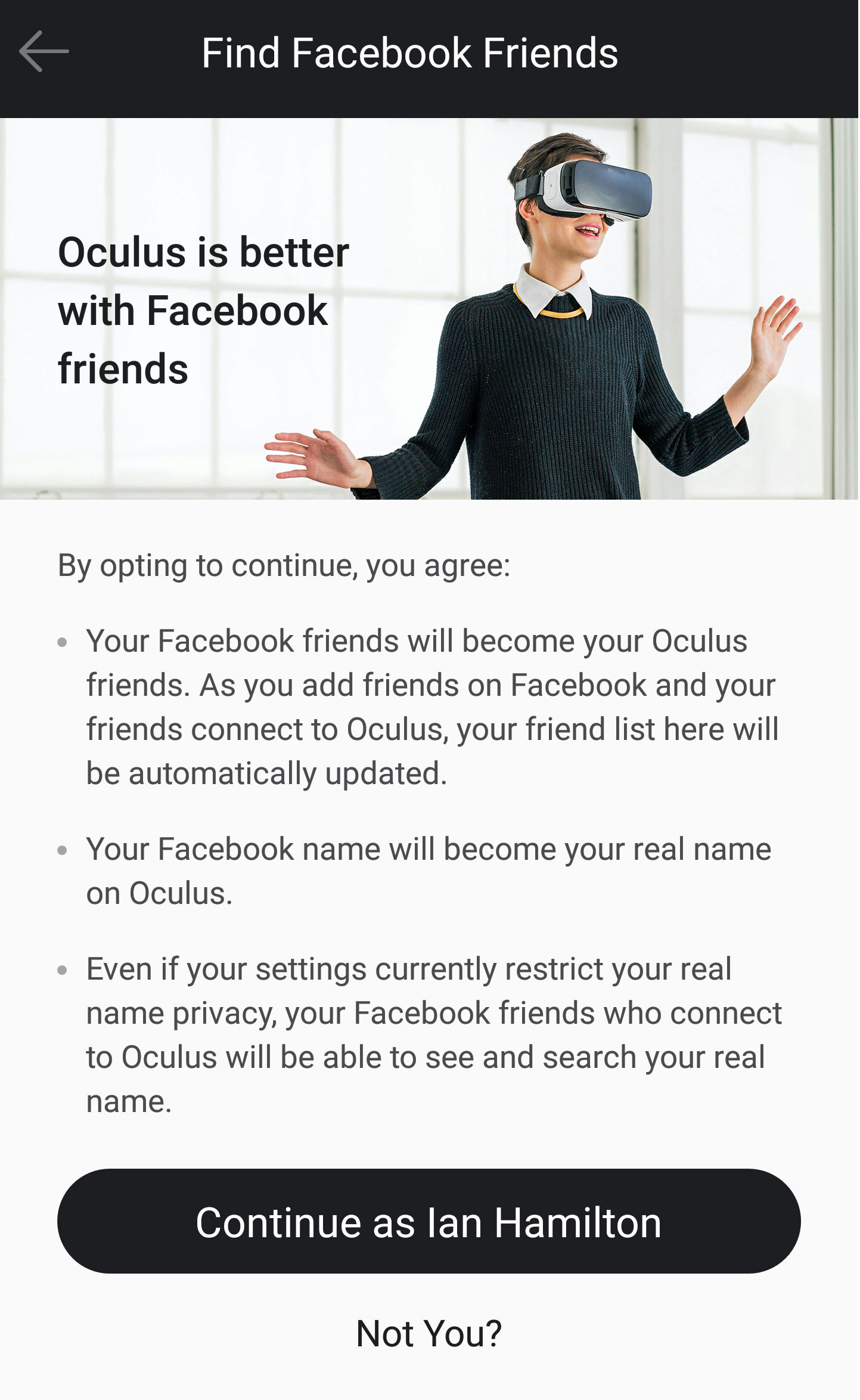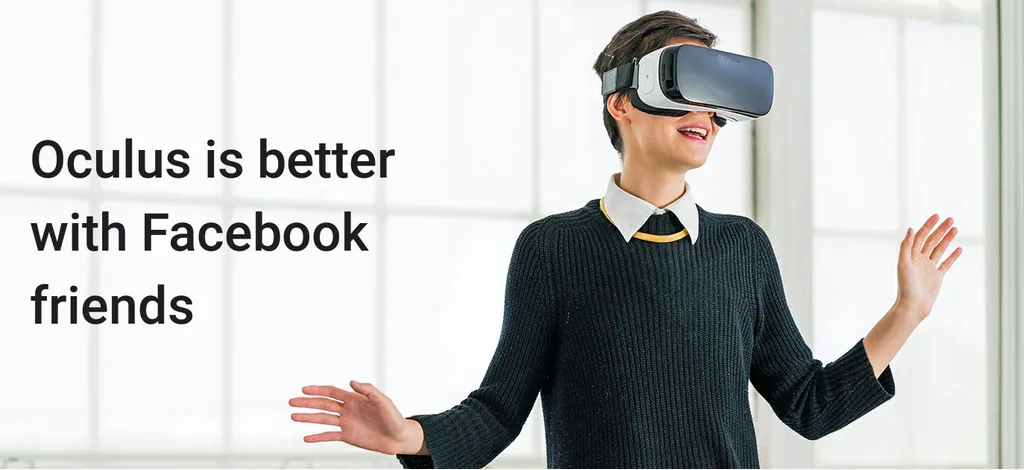A recently discovered feature of the Oculus platform lets users easily add their Facebook friends to connect with them in virtual reality.
Oculus had separately launched a friends list in March that didn’t require a Facebook account, along with some limited social features. But the company hasn’t done much with the feature since then. Oculus was purchased for $2 billion by the social media leader in 2014 and is now labeled as “part of Facebook” on its homepage. Oculus launched initial integration with the social network back in March so users could share opinions of 360-degree videos that would connect with their Facebook account.
I spotted the deeper feature buried in a menu on the Oculus mobile app and apparently a Reddit user found the feature connected to the PC-powered Rift headset. I reached out to Facebook to find out when this feature was added for each VR headset. Below is an outline of how the feature is said to work:
- “Your Facebook friends will become your Oculus friends. As you add friends on Facebook and your friends connect to Oculus, your friend list here will be automatically updated.”
- “Your Facebook name will become your real name on Oculus.”
- “Even if your settings currently restrict your real name privacy, your Facebook friends who connect to Oculus will be able to use and search for your real name.”
It’s an optional feature and may help VR experiences seem less lonely if you can connect to someone you didn’t realize already owned a headset. That said, we continue to closely watch how Facebook plans to use personal information it might collect through Oculus.
Head movement, voice chat and soon, hand movement tracking via Oculus Touch, are integral parts of how virtual reality can be used to connect you with others despite not being in the same physical location. This information can be used to create a detailed digital version of someone. Facebook is already able to create a detailed profile of users based on information they consciously share through status updates and photos — allowing the company to make money by delivering relevant ads. In VR, though, imagine how much the company could know about someone based on their subconscious reactions. How fast someone can identify an enemy and pull a trigger is potentially just as available to Facebook as how long someone gazes at a visually appealing avatar. How and why Facebook might collect this information became the subject of an inquiry earlier this year by U.S. Senator Al Franken, to which Facebook responded.


























